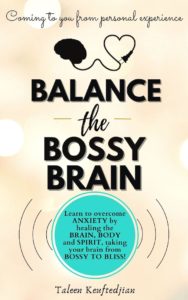All humans have a natural dopamine addiction. Dopamine is actually responsible for creating addictions related to food, sugar, drugs, alcohol, cigarettes, sex, gambling, and more. Dopamine fasting or diet, can help you overcome this addictive behavior and live a healthier life. First, let’s understand what this important chemical does, how it functions in the brain, and how it’s associated with addictions, such as drugs and alcohol, or even obsessive-compulsive disorder. Then we can incorporate the dopamine detox, to gain more control over what type of behaviors our brain should associate with pleasure.
Dopamine is a neurotransmitter in the brain that sends messages to nerve cells. It plays an important role in the brain’s reward system, and is associated with pleasurable sensations related to learning, memory, motor control, and more. 50% is produced in the brain, while the other 50% is produced in the gut.
Can You Have Too Much Dopamine?
Having high amounts of this chemical stored in your brain is not harmful. it’s when your brain constantly experiences a dopamine rush related to negative activities that it becomes damaging.
How Does it Function in the Brain?
Dopamine is responsible for both emotional and physical well-being. For this reason, there’s an extensive list of symptoms associated with a dopamine deficiency. It’s important to increase dopamine levels for healthy mood, sleep, memory, learning, concentration, and motor control. It is also responsible for the pleasure and anticipation of receiving rewards, which can contribute to both positive and negative behavior. However, dopamine is released at a more moderate rate when associated with positive behavior, while negative behavior usually causes a dopamine rush all at once. This is usually why it’s easier to become addicted to the things that are bad for us, like sugar, carbohydrates, drugs, and alcohol.

Drug Addiction & Rebalancing the Chemicals in the Brain
When someone suffers from long term addictions, they experience a dopamine imbalance in the brain which results in a lack of motivation, and an inability to experience pleasure in normal day life and new experiences. This is especially true for those who are overcoming and abstaining from their addictions. It is in this time that healing needs to occur. Luckily, levels can be restored, and receptors can heal themselves, but it’s important to remain abstinent in order for recovery to occur. What needs to happen during this time is that your brain needs to rewire itself so that it stops associating your addiction with pleasure. In other words, stop releasing dopamine when you think of your addiction, which would change your brain’s reward system. It can take some time for this to occur, so patience is vital when overcoming addictions. According to the “Recovery Research Institute” it can take 14 months for dopamine rebalancing to occur, given the person is abstinent during this time.
How to Increase Dopamine
During abstinence, it’s important to try to increase dopamine levels in healthier ways, such as l-tyrosine consumption, exercise, sleep, relaxation, and finding more positive things that bring you pleasure, such as immersing yourself in nature. Another thing to consider is going on a purpose driven journey. Living out your purpose is an excellent way to beat addictions, because purpose gives your life meaning. Purpose can activate the brain’s pleasure reward system in a positive way, and it won’t come with a hangover afterwards. Learn more.
OCD & Dopamine Imbalance
OCD is characterized by irrational intrusive thoughts or obsessions, which usually lead to compulsive behaviors. There is an anxiety or fear associated with these repetitive thoughts, while acting out the compulsions helps temporarily release the anxiety.
Dopamine is closely related to the pleasure and reward portion of the brain. It is also responsible for creating the anticipation and motivation to seek these rewards, with the expectation of feeling pleasure once they are received. This reward system is important for us to be driven individuals with a motivation to succeed in everyday life. Dopamine, when in balance, is a great contributor to overall well-being.
However, this reward system can get out of control when there is an imbalance, mixed with someone who is susceptible to addictive behaviors, such as someone with OCD. The person with OCD experiences obsessive thoughts, which creates the anticipation of avoiding these thoughts or fears through acting out certain behaviors known as compulsions. The problem is that they continue to experience more obsessive thoughts because their anticipation wasn’t followed up with an actual reward, or the reward was short lived. Therefore, the cycle of expectation and the letdown continues, which keeps the person with OCD repeating these compulsive behaviors in anticipation of this reward that is never achieved. This obsessive expectation for a reward triggers the continuous release of dopamine, which can cause high levels in the brain. This continuous release of dopamine can deplete the reserves and exhaust the overstimulated dopamine receptors. Therefore, someone who suffers from extreme OCD can end up with low levels of dopamine reserves and overstimulated receptors. This puts them at risk of becoming susceptible to drug, alcohol, sugar or any other addictions in the search for more rewards.
How Someone with OCD Can Overcome a Dopamine Addiction
Similar to those with substance addictions, those suffering from OCD must abstain from their compulsions for a significant amount of time in order to weaken the obsession. This retrains the brain to stop associating compulsions with a reward, so the brain will stop releasing dopamine when thinking about or acting out compulsions.
To The Point - Dopamine Addiction
- Everyone naturally has a dopamine addiction and this is actually what keeps us motivated in life.
- Dopamine release is associated with pleasure which can contribute to both positive and negative behavior, although it’s released excessively with negative behavior. This is why it’s easier to become addicted to the things that are bad for us, like sugar, carbs, drugs, and alcohol.
- A dopamine detox works by rewiring the brain to stops associating your addiction with pleasure.
- when dopamine is in balance, it provides a sense of overall well-being. However, this reward system can get out of control when there is a dopamine imbalance, mixed with those susceptible to addictive behaviors, such as someone with OCD.
- When someone with OCD acts out a compulsion, their brain releases dopamine. This is what makes the person with OCD want to act out more compulsions, contributing to their addictive behavior.
A relatable guide to overcoming anxiety by finding the root cause, and bringing the brain, body, and spirit back into balance. Coming to you from personal experience!
Learn more about Habitat for Wellness


